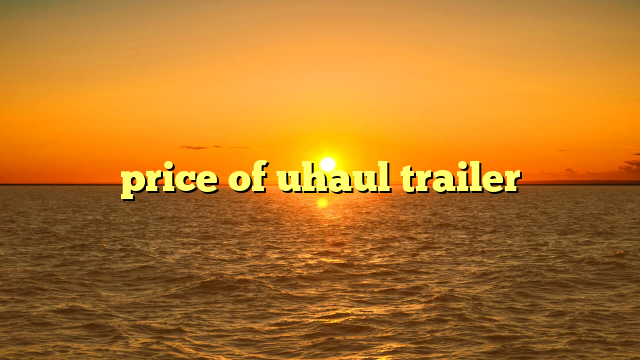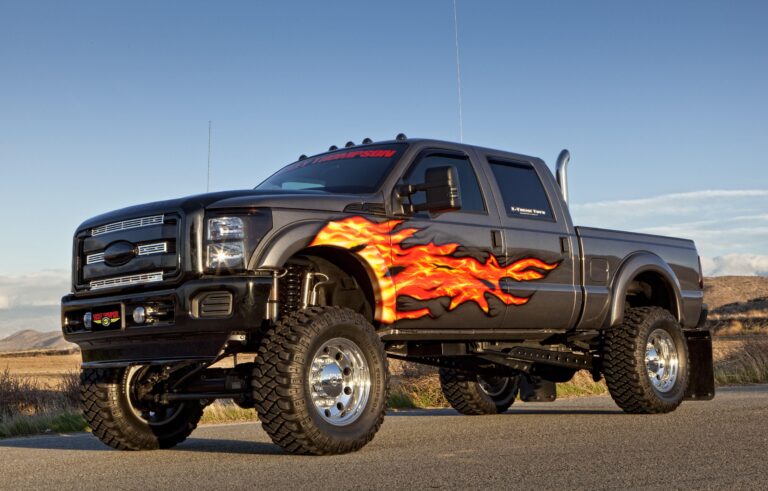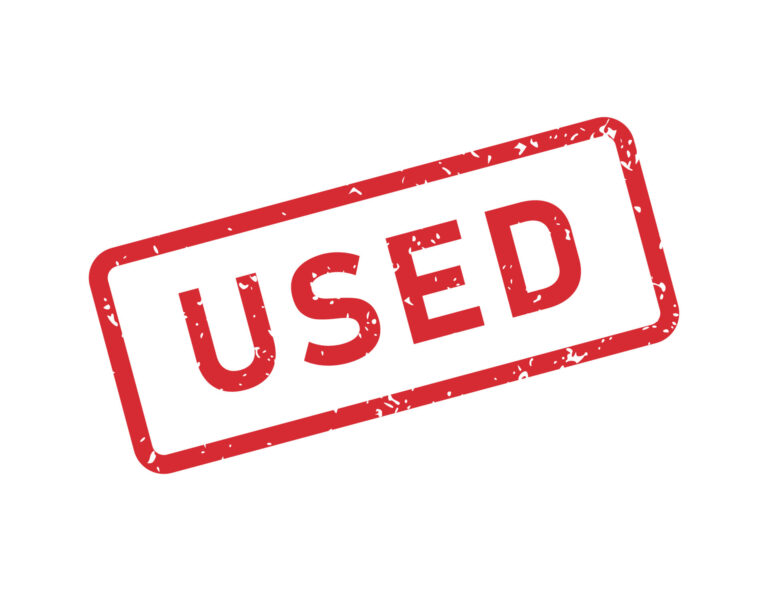U-Haul Trailer Rental Cost: Your Comprehensive Guide to Affordable Hauling
U-Haul Trailer Rental Cost: Your Comprehensive Guide to Affordable Hauling cars.truckstrend.com
Embarking on a move, decluttering a garage, or simply needing to transport a large item can often feel daunting, especially when it comes to logistics. For many, the answer lies in a reliable trailer rental, and U-Haul stands as the undisputed leader in providing accessible, affordable solutions. Understanding the intricacies of U-Haul trailer rental cost is paramount to making an informed decision, ensuring your hauling needs are met without breaking the bank. This comprehensive guide will dissect all aspects of U-Haul trailer rental expenses, from the base rates to hidden fees, helping you navigate the options with confidence and clarity.
Understanding U-Haul Trailer Types and Their Purpose
U-Haul Trailer Rental Cost: Your Comprehensive Guide to Affordable Hauling
Before diving into costs, it’s essential to recognize the diverse range of trailers U-Haul offers, each designed for specific hauling requirements. The type of trailer you choose will be the primary determinant of your U-Haul trailer rental cost.
-
Cargo Trailers (Enclosed): These trailers are fully enclosed, providing protection from weather elements and securing your belongings.
- Sizes: 4’x8′, 5’x8′, 5’x10′, 6’x12′
- Purpose: Ideal for moving household goods, furniture, or anything requiring protection from rain, dust, or theft. The 6’x12′ is the most popular for small moves.

-
Utility Trailers (Open): These open-top trailers are versatile, often featuring a ramp for easy loading.
- Sizes: 4’x7′, 5’x8′, 5’x9′ (Motorcycle), 6’x12′
- Purpose: Perfect for hauling landscaping materials, construction debris, ATVs, motorcycles, or irregularly shaped items that don’t fit in enclosed trailers.

-
Car Trailers (Vehicle Transport): Designed specifically for moving vehicles.

- Auto Transports: Full trailers that lift all four wheels of the towed vehicle off the ground.
- Tow Dollies: Two-wheel trailers that lift the front wheels of the towed vehicle, leaving the rear wheels on the ground.
- Purpose: Essential for long-distance vehicle transport, car breakdown recovery, or moving a car when you don’t want to add mileage.
Key Factors Influencing U-Haul Trailer Rental Cost
The advertised daily rate is merely the starting point. Several variables significantly impact the final U-Haul trailer rental cost:
- Trailer Type and Size: As mentioned, larger or specialized trailers (like car transports) inherently cost more than smaller utility or cargo trailers. The 6’x12′ enclosed trailer, being the largest, generally commands the highest daily rate among cargo options.
- Rental Duration: U-Haul trailers are typically rented on a daily basis for in-town moves. For one-way moves, a specific number of days is allocated based on the distance. Exceeding this duration incurs additional daily charges.
- Distance (One-Way vs. In-Town): This is a critical cost differentiator.
- In-Town Rentals: You pick up and return the trailer to the same U-Haul location. These are generally cheaper, with a flat daily rate.
- One-Way Rentals: You pick up the trailer at one location and drop it off at another. These are usually more expensive because U-Haul incurs repositioning costs. The U-Haul trailer rental cost for one-way rentals is calculated based on distance, demand, and availability, and typically includes a set number of days.
- Location and Demand: Prices can fluctuate based on geographic location and local demand. Renting a trailer in a major metropolitan area during peak moving season (summer, end-of-month) might be pricier than in a less populated area during an off-peak time.
- Additional Equipment and Services: While not direct trailer costs, items like hitches, wiring, moving supplies, and insurance coverage add to your overall expenditure.
- Time of Year/Seasonality: As with many rental services, demand drives pricing. Summer months, weekends, and the beginning/end of the month are peak times for moving, often leading to higher rates. Booking during off-peak seasons or weekdays can sometimes result in lower U-Haul trailer rental costs.
How to Get a U-Haul Trailer Rental Quote
Obtaining an accurate quote is straightforward and highly recommended before committing.
- Online: The U-Haul website is the easiest way. Enter your pickup location, desired drop-off (if one-way), dates, and trailer type. The system will provide an estimated cost.
- Phone: Call U-Haul’s customer service or a local U-Haul dealer.
- In-Person: Visit a U-Haul location.
Always ensure the quote includes all potential fees, taxes, and optional coverages to avoid surprises.
U-Haul Trailer Rental Cost Breakdown: A Price Table
Please note: The following prices are estimates and can vary significantly based on location, availability, duration, and whether it’s an in-town or one-way rental. Always obtain a direct quote from U-Haul for precise pricing. One-way rates are highly variable and often include a multi-day allowance.
| Trailer Type | Size | Typical In-Town Daily Rate (Estimate) | Typical One-Way Starting Rate (Estimate) | Key Features / Capacity |
|---|---|---|---|---|
| Cargo Trailers | 4’x8′ | $14.95 – $19.95 | $80 – $150+ | Enclosed, lightweight, 1,600 lbs payload |
| 5’x8′ | $18.95 – $24.95 | $90 – $180+ | Enclosed, popular, 1,800 lbs payload | |
| 5’x10′ | $24.95 – $29.95 | $100 – $200+ | Enclosed, more space, 2,000 lbs payload | |
| 6’x12′ | $29.95 – $34.95 | $120 – $250+ | Largest enclosed, ramp, 2,500 lbs payload | |
| Utility Trailers | 4’x7′ | $14.95 – $19.95 | N/A (Primarily In-Town) | Open top, light duty, 1,700 lbs payload |
| 5’x8′ | $18.95 – $24.95 | N/A (Primarily In-Town) | Open top, ramp, 1,650 lbs payload | |
| 5’x9′ (Motorcycle) | $24.95 – $29.95 | N/A (Primarily In-Town) | Open top, specific for motorcycles, ramp, 1,600 lbs payload | |
| 6’x12′ | $29.95 – $34.95 | N/A (Primarily In-Town) | Open top, largest utility, ramp, 2,470 lbs payload | |
| Car Trailers | Tow Dolly | $44.95 – $54.95 | $150 – $250+ | Lifts front wheels, economical, up to 3,900 lbs vehicle |
| Auto Transport | $54.95 – $64.95 | $200 – $350+ | Lifts all four wheels, safer for long distances, up to 5,290 lbs vehicle |
Note: "N/A (Primarily In-Town)" means these utility trailers are typically not available for one-way rentals due to their lower demand for long-distance repositioning.
Understanding Additional Costs and Optional Coverages
Beyond the base rental rate, be prepared for potential add-ons that can influence your total U-Haul trailer rental cost:
- Taxes and Fees: Local sales tax, environmental fees, and state-specific surcharges are standard and added to the base rate.
- Safemove®/Safetow® Coverage: This optional coverage protects you in case of damage to the trailer, your belongings, or even provides medical/life coverage. While it adds to the cost (typically a few dollars per day), it can offer peace of mind. It’s crucial to check if your personal auto insurance covers rented trailers, as many policies do not, making U-Haul’s coverage a wise investment.
- Hitch and Wiring Installation: If your vehicle isn’t already equipped for towing, U-Haul offers hitch installation services and wiring kits. This can be a significant upfront cost (ranging from $150 to $500+) but is a one-time investment if you plan to tow frequently.
- Moving Supplies: Dollies, moving blankets, boxes, and tie-downs are available for purchase or rent and can add to your total expenditure.
- Late Return Fees: Returning the trailer past the agreed-upon time will incur additional daily charges. Communicate with U-Haul immediately if you anticipate a delay.
- Cleaning Fees: While not common, if the trailer is returned excessively dirty (beyond normal wear and tear), a cleaning fee might be assessed.
Tips for Saving Money on Your U-Haul Trailer Rental
Optimizing your U-Haul trailer rental cost requires a bit of foresight:
- Book in Advance: Especially for one-way rentals or during peak seasons, booking early secures better rates and ensures availability.
- Consider Off-Peak Times: If your schedule allows, rent during weekdays or off-season months (fall/winter) for potentially lower rates.
- Accurately Assess Your Needs: Don’t rent a trailer larger than you need. A smaller trailer means lower costs and potentially better fuel efficiency for your towing vehicle.
- Compare In-Town vs. One-Way Carefully: For short distances, sometimes an in-town rental with two trips is cheaper than a one-way rental. Factor in fuel and your time.
- Ensure Your Vehicle is Ready: Having your hitch and wiring installed beforehand avoids additional U-Haul service costs.
- Load Efficiently: Maximize space to avoid needing a second trip or a larger, more expensive trailer.
- Return on Time: Avoid late fees by adhering strictly to your rental agreement.
- Decline Unnecessary Add-ons: Carefully review all optional services and decline those you don’t need or are already covered by your existing insurance.
Important Considerations Before Renting
Beyond cost, safety and practicality are paramount:
- Towing Capacity: This is critical. Your vehicle’s owner’s manual will specify its maximum towing capacity. Never exceed this limit, including the weight of the trailer itself and its contents. U-Haul has strict requirements and may refuse rental if your vehicle doesn’t meet them.
- Hitch Requirements: Ensure your vehicle has the correct class of hitch receiver and ball size for the trailer you intend to rent.
- Lighting and Wiring: Functional brake lights, turn signals, and running lights are legally required. Your vehicle must have the appropriate wiring harness.
- Driving with a Trailer: Be aware of increased braking distances, wider turning radius, reduced acceleration, and potential sway. Practice in a safe, open area if you’re new to towing.
- Loading and Weight Distribution: Load heavier items towards the front of the trailer (over the axle) and distribute weight evenly from side to side. Incorrect loading can cause dangerous sway.
Challenges and Solutions
While U-Haul aims for seamless rentals, some challenges can arise:
- Availability Issues: During peak times, your desired trailer size or type might not be available.
- Solution: Book well in advance, be flexible with pickup/drop-off dates or times, and consider alternative sizes.
- Unexpected Costs: An overlooked fee or an assumption about coverage can lead to a higher final bill.
- Solution: Always get a detailed, written quote. Ask questions about all line items, especially optional coverages and potential late fees.
- Towing Concerns: Your vehicle might not be suitable, or you might feel uncomfortable driving with a trailer.
- Solution: Consult U-Haul’s experts on vehicle compatibility. If unsure about driving, consider a full-service moving company or hiring a professional driver.
Conclusion
Navigating U-Haul trailer rental cost doesn’t have to be a guessing game. By understanding the different trailer types, the factors that influence pricing, and the various additional costs and coverages, you can approach your rental with confidence. Remember to prioritize safety by ensuring your vehicle is capable of towing and by loading the trailer correctly. With careful planning, smart choices, and an awareness of potential pitfalls, you can leverage U-Haul’s extensive fleet to achieve your hauling goals efficiently and affordably.
Frequently Asked Questions (FAQ)
Q1: Can I rent a U-Haul trailer for one-way use?
A1: Yes, U-Haul offers one-way trailer rentals for cargo trailers and car trailers (Auto Transport and Tow Dolly). Utility trailers are typically for in-town use only.
Q2: Do I need insurance for a U-Haul trailer?
A2: While not mandatory, it’s highly recommended. Your personal auto insurance may not cover rented trailers. U-Haul offers optional Safemove® and Safetow® coverage which can protect you from damage to the trailer, your belongings, and offer other benefits.
Q3: What kind of hitch do I need for a U-Haul trailer?
A3: U-Haul trailers require a specific hitch ball size (usually 1 7/8" or 2") and a properly installed hitch receiver (Class I, II, or III) with adequate towing capacity. Your vehicle must also have working lighting connections.
Q4: Can I pick up a trailer at one U-Haul location and drop it off at another?
A4: Yes, this is the definition of a one-way rental. You select your pickup and drop-off locations when making your reservation.
Q5: What if I return the trailer late?
A5: Returning a trailer late will result in additional daily charges. It’s best to contact U-Haul immediately if you anticipate a delay to discuss your options.
Q6: Are there any mileage fees for U-Haul trailers?
A6: No, U-Haul trailer rentals are typically charged at a flat daily rate for in-town rentals or a flat rate for one-way rentals (which includes a set number of days). There are no per-mile charges for the trailer itself.





